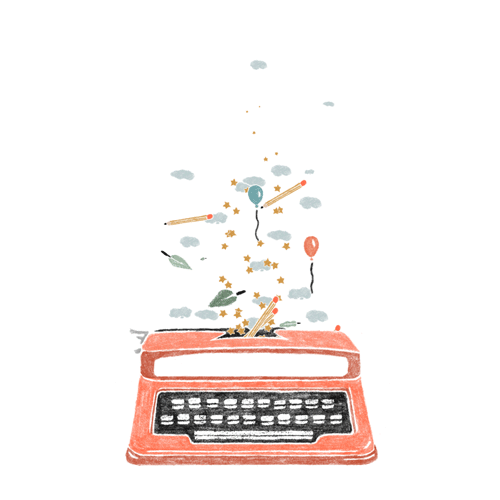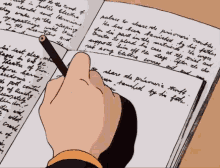
As a student, we all are put up in a position to write at some point in our learning journey. Be it essay writing in school or doing plagiarism-free projects during our college time. Writing is a skill that each one of us should try to master. There are various activities to improve creative writing skills.
Creative writing also helps us learn topics by heart because writing helps people remember topics for a long time. Unquestionably, this blog will discuss how to improve creative writing skills in students. We will learn creative writing tips for beginners. By the end of this post, you will know how to write a creative story. So, without further ado, let’s begin and master tips to improve writing skills.
First, let us obtain a brief understanding of what creative writing is.
What is Creative Writing?

Creative writing, as the name indicates, is a type of writing that deviates from the norms of formal, academic, technical, and business writing.
Instead, it incorporates various fictional and nonfictional forms, including but not limited to short stories, plays, poems, prose, and journalism.
The term “Creative writing” is often defined broadly as any form of writing which is uniquely the author’s expression of who they are. Characterization, story, and plotting are specific focal points, and the overall structure is often infused with a sense of wonder and originality.
The art of writing, in this sense, encompasses any form of original, modern composition; it follows no strict rules and uses a wide variety of techniques.
Certainly, writing courses emphasizing originality and freedom from imposed genre conventions typically cater to students interested in fiction, poetry, or screenwriting.
Following this, let us quickly look at different types of creative writing.
Types of Creative Writing

Without a doubt, a wide variety of genres and styles fall under the umbrella term “creative writing.” Creative writing comes in many forms, the most common of which are fiction and nonfiction. The most frequently used are:
- Fiction: novels, novellas, short stories, etc.
- Speeches
- Essays
- Biographies
- Report Writing
- Case Studies
- Scriptwriting
Now that we have a quick understanding of types of creative writing let us learn about various tips.
Also Read- Top 10 In-demand Skills: How To Build A Rewarding Career
How to Write a Creative Story?

Here, we will discuss various steps which should be kept in mind while writing a creative story.
Find your Inspiration
To begin, the first and foremost thing in any writing is to find an idea. If this is for school, you may have been given a prompt that specifies a specific theme, conflict, and other aspects of your story. If not, then try to find some. Surprisingly, your own life, current events, or even simply allowing your imagination to run wild down a “what if?” rabbit hole are all good places to look for ideas.
- Watch. Listen. Observe.
- Remember to write things down.
- If you make it a point to do all these things, you will join the ranks of the great writers who have found inspiration in the most unlikely places.
Mind Mapping
Simultaneously, get creative once you’ve got a story idea. Write down everything you can think of, even a basic plot outline.
- Feel free to experiment with different concepts for your story’s protagonist, setting, conflict, and resolution.
- Once you have the fundamentals down, you can choose your point of view.
- Where does the concept of narrative come into play here?
- How do the perspective and experience of the narrator shape the story being told?
Preparing a Blueprint
At this time, the next step is to compose a story outline. In fact, an outline for a story is much like an outline for a research paper or any other type of formal writing.
- Outlines are simple blueprints for stories detailing significant events and supporting details.
- Many authors find that outlining their stories helps them better visualize the relationships between the various scenes.
Creating a Story Draft
Next, it is time to get down on paper. Put pen to paper, and don’t stop to edit as you go; you need to get your story out. Undeniably, there will be plenty of time for revisions in the future.
Revision and Editing
Furthermore, having other people read over your work at this point can be very beneficial. In any case, take your story to your writing group for some honest criticism. Because they aren’t emotionally invested in the story, readers are often better at spotting plot holes, mischaracterizations, portions that might be improved, and other aspects that need to be improved than the author.
- If you don’t already have a group of writers to critique your work with, have some trusted friends or family members take a look.
- We realize this is a big request, but if you want your stories to be read by anyone other than yourself, you need to solicit feedback from your readers.
Lastly, let us discuss the final part of this post. (Undoubtedly, the most interesting one)
Creative Writing Tips and Tricks

Obviously, you must be wondering how to improve creative writing skills. Well, worry not; the following tips will help you in mastering your next writing.
- Try to write daily, whether it’s just a sentence or two.
- You can improve your storytelling skills and vocabulary by reading frequently and widely.
- Set up vivid pictures in the reader’s mind by using sensory details.
- Introduce your work with a powerful opening sentence or two.
- Create original characters with interesting backstories and goals.
- Don’t just tell the reader what’s going on; show it through dialogue, actions, and descriptions.
- Make sure to edit and rewrite your work several times to ensure its clarity and consistency.
- Find your writing style by exploring various genres.
- To make the content more genuine, draw on your thoughts and feelings as you write.
- Feel free to experiment and explore new avenues of thought in your writing.
In any case, try to complete the above checklist, and you will see improvement in your writing.
Conclusion

On the whole, creative writing is a fantastic way to express yourself and tell stories. You can improve your writing and make it more interesting for your readers by often writing, including sensory details, and creating distinct characters. Try new things and take chances when writing. Remember that revising and editing are crucial steps in the writing process. Writing skills can be developed through practice and dedication.
In conclusion, follow the tips and good luck with your next writing assignment!

